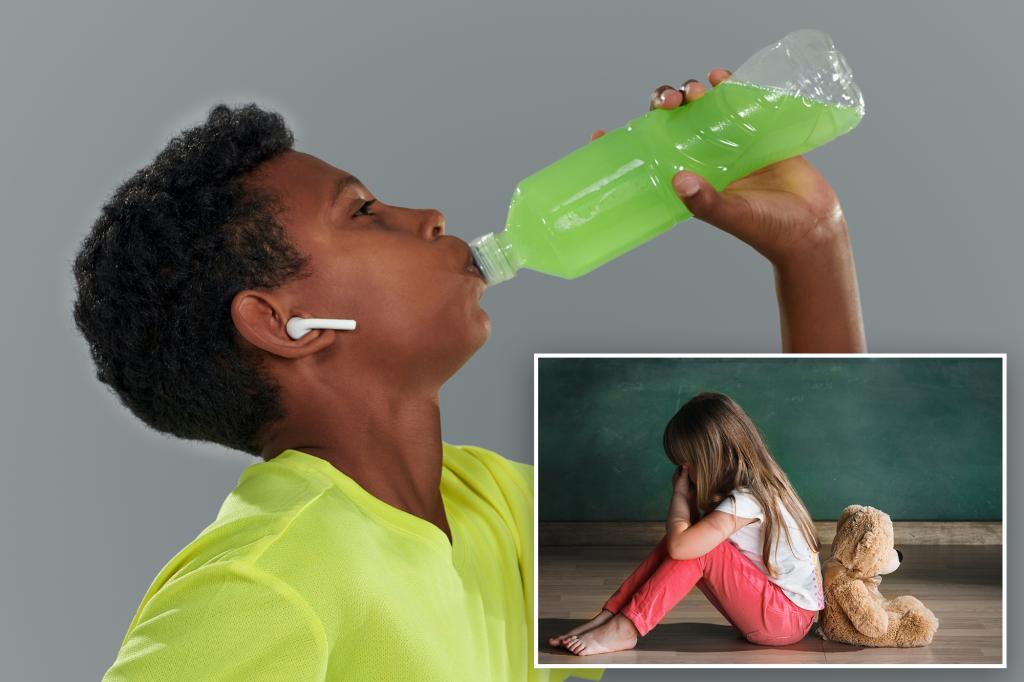Energy drinks may pose risks to young brains, according to new research.
Those who consume energy drinks – which aim to boost energy through the use of caffeine or other stimulants – have been shown to have a higher risk of mental health problems, including attention deficit hyperactivity disorder (ADHD), depression, anxiety and suicidal thoughts.
The findings stem from a review by Fuse, the Center for Translational Research in Public Health at the University of Teesside and the University of Newcastle in the UK.
In a review published in the journal Public Health, researchers looked at data from 57 studies of more than 1.2 million children and young people from more than 21 countries who consumed energy drinks.
The researchers conducted this study as a follow-up to an earlier review in 2016.
A study shows that children who have energy drinks may be at higher risk of mental health problems. Svitlana – stock.adobe.com
“We found a greater list of mental and physical health outcomes associated with children and young people consuming energy drinks,” lead author Amelia Lake, professor of public health nutrition at Teesside University, told Fox News Digital.
“We repeat [the review] only to find a growing clear body of evidence that consumption of these beverages is associated with negative health outcomes.”
Caffeine content in energy drinks ranged from 50 mg to 505 mg per serving, compared to 90 mg in 8.45 ounces of coffee, 50 mg in 8.45 ounces of tea and 34 mg in 16.9 ounces of soda, the researchers said.
Some of the mental health symptoms that children can experience from consuming energy drinks are ADHD, depression, anxiety, and suicidal thoughts. master1305 – stock.adobe.com
Based on the findings, the researchers and other UK health organizations are calling on the government to ban the sale of energy drinks to children under the age of 16.
“This evidence shows that energy drinks have no place in the diets of children and young people,” Lake said.
“Policymakers should follow the example of countries that have placed age restrictions on their sales to children.”
Researchers and other UK health organizations are calling on the government to ban energy drinks for children under 16. airborne77 – stock.adobe.com
Experts weigh in
Erin Palinski-Wade, a registered dietitian based in New Jersey, was not involved in the new research but said the findings did not surprise her.
“Energy drinks are not a safe option for children and no safe guidelines have been established for caffeine consumption for those under 18,” he told Fox News Digital.
Caffeine has a half-life of six to eight hours, he says — which means it takes a long time to leave the system.
“Even small amounts of caffeine can affect the quality and quantity of sleep, and poor sleep is directly linked to declines in mental and physical health – in adults as well as children,” says Palinski-Wade.
“Lack of quality sleep can lead to impaired cognitive functions such as decision-making, conflict resolution, working memory and learning, along with changes in behavior, mood and an increased risk of depression.”
Lack of sleep, which can be caused by energy drinks, can affect a child’s brain development. Tatyana – stock.adobe.com
Inadequate sleep can also negatively affect a child’s brain development, he added, which can lead to learning problems and more frequent negative emotions.
“Lack of sleep can also affect memory and concentration, making it more difficult to do academics, especially if sleep is chronically disrupted,” the expert said.
Categories: Trending
Source: thtrangdai.edu.vn/en/




